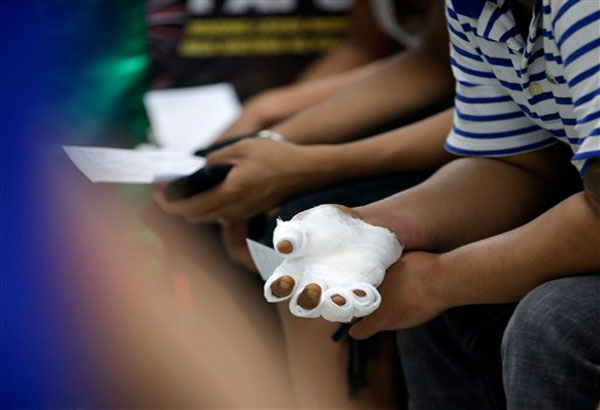Warning out on night-biting dengue mosquito
MANILA, Philippines - A night-biting mosquito can also cause dengue.
An expert of the Philippine Association of Entomologists (PAE) warned yesterday that Aedes Albopictus, a night-biting mosquito, could increase the risk of dengue in the country.
PAE secretary Barbara Caoili said a study conducted last year showed that dengue is also caused by Aedes Albopictus.
The study by the University of the Philippines-Los Baños was commissioned by Green Cross Inc., which is manufacturing a hypoallergenic insect repellant lotion.
“It is just that (Aedes) Aegypti is the most popular. But Albopictus is considered as a secondary vector of dengue. Unlike Aegypti which is known as a day-biting mosquito, Albopictus bites during daytime and nighttime,” she noted.
“Many people believe that dengue mosquitoes only bite during the day. This makes them feel more complacent at night, as they think there’s no more risk of dengue infection. However, this new study shows that the danger of dengue is now more serious since infection can occur both during the day and at night,” Caoili added. Caoili said a 1974 study showed that the peak biting period of Aedes Albopictus was from 9 a.m. to 10 a.m. and 5 p.m. to 6 p.m.
A 2011 study, however, revealed that its biting time had extended from 6 p.m. to 8 p.m. and from 11 p.m. to 1 a.m.
She said the forested area of Mt. Makiling in Laguna is the natural habitat of Aedes Albopictus.
However, the mosquito can easily spread to urban areas like Manila because of the migration of people, she added.
“Once you transport a water container containing its eggs, you can transport the insect to other places. So far I cannot say if they are already in Metro Manila but it can easily be transported. From Japan to the United States it was transported through the tires of imported vehicles, there was a literature on that,” she said.
She said the threat of dengue can also be attributed to climate change, including rising temperatures, humidity and rainfall, which create tropical and sub-tropical conditions that are ideal for day and night dengue mosquitoes to thrive in.
She called for public vigilance against mosquitoes to prevent the spread of dengue.
On its website, the European Center for Disease Prevention and Control said Aedes Albopictus originated in Southeast Asia. It has spread in the last 30-40 years to North, Central and Southern America, parts of Africa, northern Australia and several countries in Europe. The mosquitoes have caused dengue outbreaks in Reunion Island in 1977 and 1978, Mauritius in June 2009 and is believed to be the cause of the spread of the dengue virus in France and Croatia in 2010, the website added.
- Latest
- Trending

































